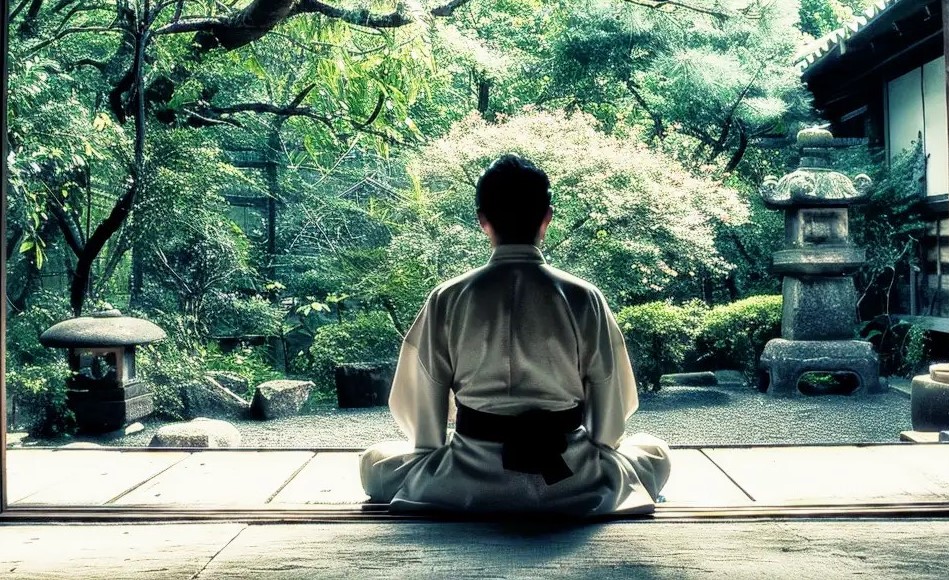Unlock Vitality and a Larger-Than-Life Perspective Through These 15 Japanese Habits of Sustaining Energy

Unlock Vitality and a Larger-Than-Life Perspective Through These 15 Japanese Habits of Sustaining Energy
The Japanese, renowned for their longevity and vitality, offer a treasure trove of lifestyle habits that promote holistic well-being.
2 May 2024
By Ishika Kumar
In a world where the pace of life seems to accelerate with each passing day, finding sustainable energy becomes paramount. The Japanese, renowned for their longevity and vitality, offer a treasure trove of lifestyle habits that promote holistic well-being. From the tranquil practice of shinrin-yoku to the artful tradition of tea ceremonies, here’s a deep dive into fifteen Japanese habits that can revolutionise your energy levels.
1. Embracing Ikigai: Central to Japanese philosophy is the concept of ikigai, the “reason for being.” This principle features the importance of finding purpose and joy in daily life, whether through work, relationships or hobbies. By nurturing passions and embracing what brings fulfilment, individuals tap into a wellspring of energy that transcends routine. It is the reason you get out of bed every morning and go on with your day and it can be anything. Ikigai has always varied from person to person.
2. Mindful Eating with Washoku: Washoku, the traditional Japanese cuisine, offers not only a feast for the senses but also a blueprint for balanced nutrition. Rich in fresh fish, seasonal vegetables and fermented foods, it provides essential nutrients while promoting gut health.
3. The practice of Hara Hachi Bu: This is the art of mindful eating. One has to eat food only until 80% of the stomach is full, as it prevents overindulgence and sustains energy levels throughout the day.
4. Shinrin-Yoku or Forest Bathing: Nature holds immense restorative powers, and the Japanese art of shinrin-yoku, or forest bathing, harnesses this energy. Immersing oneself in the sights, sounds and scents of the forest reduces stress, whilst engaging all the senses of the human body and mind. It boosts immunity and revitalises the body, leaving one feeling invigorated and refreshed.
5. Embracing Ofuro: Taking warm baths, or ofuro, is a good way to calm the nerves and reduce stress, promoting relaxation and ensuring a restful night’s sleep.
6. Incorporating Onsen Rituals: Bathing in traditional onsens, or hot springs, isn’t merely a leisure activity; it’s a holistic experience that the Japanese engage in to promote health and relaxation. These mineral-rich waters relieve muscle tension, improve circulation and induce deep relaxation, leaving one feeling revitalised and recharged.
7. Ritualistic Tea Ceremonies: Tea in Japan transcends mere beverage status; it’s a cultural institution steeped in mindfulness and tradition. Engaging in tea ceremonies promotes relaxation and presence of mind. The ceremonial process fosters tranquillity, reducing stress and nurturing mental clarity. This helps in being calm and patient, which are the cures to a peaceful mind state.
8. Inemuri; Prioritising Sleep: Despite their industrious reputation, the Japanese understand the value of restorative sleep. The concept of inemuri, or “being present while asleep,” allows for short power naps in public spaces. This practice rejuvenates the mind and body, enhancing alertness and productivity.
9. Cultivating Discipline through Martial Arts: Martial arts are deeply ingrained in Japanese culture, offering not just physical fitness but also mental fortitude. Practices like karate and judo instil discipline, focus and balance, enhancing energy levels and overall well-being.
10. Daily Movement with Radio Taiso: Radio calisthenics, known as “radio taiso,” is a morning ritual in Japan. These simple exercises are set and synced to music, and are also broadcast nationwide, promoting flexibility and circulation, and providing an energetic start to the day.
11. Nurturing Kizuna: Maintaining healthy and positive relationships, or kizuna, is a cornerstone factor of emotional well-being, providing support and sustenance for a vibrant life.
12. Kaizen (Continuous Improvement):The philosophy of kaizen emphasises continuous improvement through small, incremental changes and not big alterations. Applying this principle to daily habits fosters productivity, reduces stress and fuels a perpetual drive for self-improvement, sustaining high energy levels with an abundance of growth.
13. Regular Workouts and Riding the Bicycle: A consistent workout regimen, whether cycling, walking or engaging in intense sports, promotes cardiovascular health and sustained energy levels. Incorporating cycling into daily routines not only aids in weight management but also promotes an active and healthy lifestyle.
14. Cultivating Tsuba Niwa: Gardening, or tsuba niwa, is associated with a healthy heart and a happy mind, supporting longevity and providing a fulfilling connection with nature; as you care for plants and shrubs, you care for yourself while they too, take care of you.
15. Finding Work-Life Balance: The Japanese understand the importance of balancing work commitments with personal time. By honouring boundaries and dedicating time to hobbies, relationships and self-care, individuals rejuvenate their spirits and sustain energy for the long haul.
Finally, by adopting these fifteen Japanese habits, one can unlock a reservoir of sustained energy that transcends the frenetic pace of modern life. From embracing purpose to immersing oneself in nature and fostering discipline, the secrets to Japanese vitality lie in mindful practices that nourish both body and soul.
So, why not infuse a bit of Japanese wisdom into your daily routine and discover a newfound zest for life?










